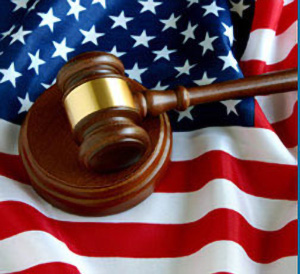April 11, 2012
By ANNE BLYTHE
RALEIGH, N.C. – John Edwards spent a career practicing the art of persuasion, first as a trial lawyer wooing juries for big awards and then as a politician hunting for votes.
Thursday, he and his lawyers will begin what legal experts say can be a key step toward a courtroom victory or loss – selecting the 12 people who will render his next verdict.
That process begins Thursday in a Greensboro, N.C., federal court, nearly a year after a grand jury handed up a six-count indictment accusing the 58-year-old former Democratic presidential contender of conspiring to violate campaign finance laws and accepting illegal contributions. Edwards, his team of attorneys, prosecutors and federal Judge Catherine Eagles will participate in the questioning of potential jurors, a winnowing that is expected to take more than a week.
Whether Edwards gets the verdict he wants may well depend on whether he gets the jury he wants. Lawyers say a case can be won or lost in jury selection.
Valerie Hans, a law professor at Cornell University who has written extensively on the American jury system, said this case, rooted in politics, could be a tough one for selecting jurors.
“I am not sure I know who would be a good juror in this case for either side,” Hans said.
Even a prospective juror’s political leanings may not point to how they would vote on Edwards’ guilt or innocence, she said.
“This might be a case where the Republicans assumed everything all along, but there are Democrats who feel betrayed,” Hans added.
The names of the potential jurors scheduled to arrive in court Thursday morning have been pulled from voter registration rolls and driver’s license lists. The Middle District of North Carolina stretches from Statesville to the west and Durham to the east. It includes Orange County, where Edwards lives, just outside Chapel Hill.
The case, in many ways, is made for the tabloids – with its infidelity, large financial gifts, jet-setting lifestyles and celebrity witnesses. It also is a case that will test the sweep of campaign finance law.
Though defense attorneys have filed hundreds of pages of court documents hoping to limit evidence and testimony to that one topic, they are likely to probe jurors on their thoughts and opinions on what might seem to be very personal topics.
Because many people in the jury pool are likely to have heard of Edwards and his woes, they will be asked to fill out questionnaires that prosecutors and defense attorneys will see before the individual questioning phase.
Potential jurors not only will be asked about their familiarity with the case, according to court documents filed for pre-trial hearings, they will be questioned about whether they can limit their deliberations to evidence presented in the courtroom and not the voluminous media reports that have circulated for years on Edwards, his paramour, Rielle Hunter, the child from their extramarital affair, and his late wife, Elizabeth.
Lawyers are likely to delve into the opinions of potential jurors on extramarital affairs, jury consultants say.
Philip K. Anthony, the chief executive officer of DecisionQuest, a trial consulting firm in Los Angeles, said prosecutors and defense attorneys can get at some of the more prickly issues by first using questionnaires, then seeking more embellishment with non-direct questions in an open courtroom.
“With a written document,” Anthony said, “people feel safe to answer more candidly.”
“Then in an open courtroom,” he added, “you might ask a question such as ‘How do you think the facts of Mr. Edwards’ private life are going to affect your opinion of him?’ “
Edwards’ attorneys are likely to be looking for people who believe that extramarital affairs are often something that happen in marriages but are not a deal-breaker, said Marshall Hennington, a trial and jury consultant based in California.
The consultants also said lawyers will be looking to root out “stealth jurors,” a phrase used to describe someone actively seeking to participate in a trial. Studies show that anywhere from 15 percent to 20 percent of a jury pool can fall into that category.
Sometimes those so-called “stealth jurors” are looking to profit financially from their service through book and movie deals. Other times they have an ax to grind, a point to make or fancy the possibility of being in the limelight of a high-profile case.
Most jurors, consultants say, think of jury service as a civic duty, taking it seriously and ultimately wanting to do a good and fair job.
Tracey Raksnis, a Wake County resident who recently served as forewoman of the Jason Young murder trial, has been asked many times what it was like to serve on a jury that was streamed live on TV websites and covered extensively by local media.
“I always say, ‘It was interesting,’ ” Raksnis said.
Though she had no advice for those who might be selected to sit in on the Edwards case for weeks, Raksnis offered one description of what it might be like in the jury box as they are questioned by prosecutors and defense attorneys probing for details that might help them decide how they might vote in a jury room.
“It’s a little like an interrogation,” Raksnis said.
